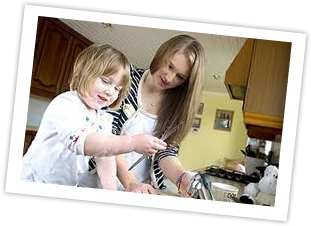- Au Pair of the Year 2024
- Stories of Au Pairs and Host Families During COVID-19
- Edna Imbachi Guaca - Au Pair of the Year 2020
- Things to Do With Your Toddler in Los Angeles
- Neila Maria Santana Costa - EurAupair Au Pair of the Year 2019
- EurAupair: Culturally Enriching, Convenient, and Affordable for 30 Years
- The Four Major Benefits of EurAupair's Au Pair Program in America
- Lorena Simon - EurAupair Au Pair of the Year 2018
- Things to Do With Your Toddler In Boston
- Never say goodbye… | An Au Pair Reunion Story
- Things to Do With Your Toddler In Chicago
- Home Sweet Home: How To Cope With Reverse Culture Shock
- Former Au Pair Mette Sharing Her Year as an Au Pair!
- Former Au Pairs... Where Are They Now?!
- Karina Kolbe - EurAupair Au Pair of the Year 2017
- New Year's Resolutions for Au Pairs in the U.S.
- Au Pair Holiday Gift Ideas for Host Families
- An Au Pair Guide to Thanksgiving - An American Tradition
- Tricks and Treats to Enjoying Halloween With Your Host Siblings
- When One Gap Year Ended Into the Best 4 Years of My Life
- Former Au Pair and Community Counselor Laetitia Mouton’s Story
- 6 Fun After School Activities for Host Families and Au Pairs
- Summer Fun With The Kids
- Au Pair Story - Farm Life
- EurAupair's 2016 National Month of Giving
- Money Management for Au Pairs
- Glossary: Understanding the Au Pair Lingo
- Elise Ducam - EurAupair Au Pair of the Year 2016
- Can au pairs provide child care over the holidays
- 7 Facts about the EurAupair NYC Workshop
- Surviving Snow Days as an Au Pair in America
- What do you do to entertain a 20-year-old when you’ve forgotten what it’s like to be 20?
- My Time with my American Family!
- Jacqueline Maersch - EurAupair Au Pair of the Year 2015
- True American Experience for Au Pair Jennifer
- My 21 Months in the USA
- Quick Overview of American Holidays
- Svenja Kupke - EurAupair Au Pair of the Year 2013
- French Au Pair Emilie’s Story
- EurAupair Au Pair Awarded IAPA Au Pair of the Year
- Au Pair Alice Shares Her Experience
- Advantages of Becoming an Au Pair
Advantages of Becoming an Au Pair
Becoming an aupair or a live-in nanny offers a young woman many advantages. Besides giving her the opportunity to travel to places she’s never seen, it also gives the person traveling abroad a unique perspective.
Learning about a language and a culture is an entirely different experience when one lives in the host country with a native-speaking family as opposed to just visiting the country for a few weeks. This opportunity offers the in home child care provider with a complete language immersion situation—the best way to acquire a language quickly and in context. And unlike classroom language instruction, learning a language in a foreign country gives the nanny an opportunity to learn her new language in the same way an aupair learned her mother tongue—through contact with native speakers.
Around the Kids
For beginning language students, working with small children each day is
an ideal place to start learning and using a language. For many adults
learning a language, feelings of awkwardness are common as the adult
struggles to express their self in the new language in even the most
basic way. However, young children often don’t speak in full sentences,
use visual language cues like pointing to convey their point, and spend
hours listening to simple nursery rhymes and stories.
These resources give the nanny exposure to the language without the pressure of having adult conversations with adult-level vocabulary. While it would be easy to discount the advantages one gains from learning a language this way, this method provides solid contact with it; most people who study a language realize that most of the day-to-day conversations on the street don’t involve very complicated ideas. Despite this, many adult language learners are reluctant to speak to other adults, because they lack practice. Talking with the children in a family builds confidence and vocabulary before the aupair is required to carry on full conversations with other adults.
Conversations with Adults
Once an in home child care provider develops linguistic confidence by speaking to the children of the house on a regular basis, talking with the adults of the home gives her further opportunities to not only practice speaking, but to get feedback. It’s natural for non-native speakers to make mistakes when learning a language. Adult speakers of the language can help explain what more complicated phrases mean, convey the meanings of colloquialisms, and introduce more complicated sentence structures and complex words into the nanny’s vocabulary.
However, unlike some adults the nanny might encounter, their host family will most likely be more understanding of the mistakes she makes as she learns the language, giving her a safe environment in which to practice before the aupair begins speaking with other native-speaking adults in the country.
Conclusion
Although the benefits of taking an aupair job in a foreign country are many, perhaps one of the best ones is the chance it gives an in home child care worker to learn a new language. In these days of globalization, the person who has foreign experience and can speak a foreign language often have the best work opportunities. While a young nanny may not wish to work in child care forever, the days spent living and working in someone’s home and with their children hold many rewards beyond just the day-to-day perks of working to earn a bit of money. It may be the key to a bright future.





